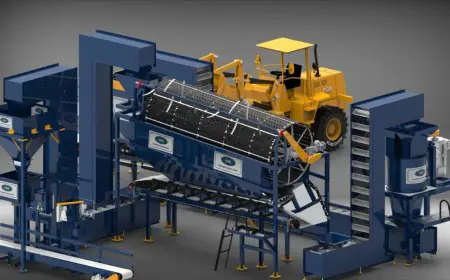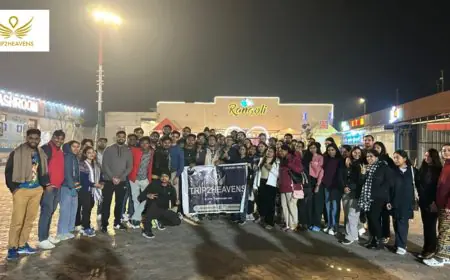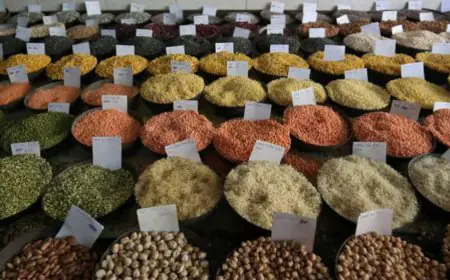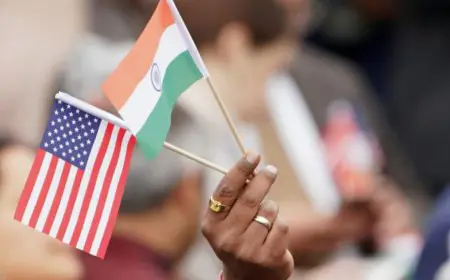Kashmir's Traders Struggle As Sales Drop 70 Per Cent Ahead Of Eid
Markets across Srinagar and the Kashmir Valley, typically buzzing with activity ahead of Eid-ul-Fitr, are witnessing a significant slowdown this year. Local traders are grappling with reduced footfall and sluggish sales, attributing the downturn to the increasing popularity of online shopping and rising costs of essential goods. Eid-ul-Fitr, marking the end of the holy month of Ramzan, is expected to be celebrated on Monday or Tuesday, depending on the sighting of the crescent moon. However, the usual rush in and around Lal Chowk, Srinagar’s commercial hub, remained absent, reported PTI. Shops that traditionally experience peak sales during this period—such as those selling confectioneries, bakery items, ready-made garments, and crockery—are reporting a drastic dip in business. “The market is about 70 per cent down from what it used to be before Eid festivals,” said Suhail Shah, Vice President of the Lal Chowk Traders Association. “The market outlook for Eid is worse than normal days.” The decline in consumer spending has left many businesses struggling. A bakery shop owner in the Lal Chowk area lamented that sales have dropped significantly compared to previous years. “There is no sign of the usual shopping zeal associated with Eid,” he said. Also Read : UPI Users Alert! NPCI Issues New Guidelines, Effective April 1. Read All Details HERE Economic Distress and Changing Trends Traders believe that multiple factors contributed to this year’s subdued shopping trends. Shah pointed out that while online shopping played a role in diverting customers, the larger issue is a decline in purchasing power. “Every sector is affected. The sales were sluggish even in bakeries and confectionaries this year. Ready-made garment dealers are the most affected. To some extent, online shopping is to blame for that, but overall, the purchasing power of the people has decreased,” he explained. Earlier, long queues were a common sight outside popular bakery shops in Srinagar ahead of Eid. This year, however, many of these stores are experiencing lower demand. Shah further highlighted that the local economy appears to be sustained primarily by the salaried class. “It is the money of the salaried class that is moving around. Otherwise, there is an economic distress, and businesses are suffering,” he added. With traders already reeling under financial strain, many are hoping for a last-minute surge in sales before Eid. However, the prevailing economic conditions and shifting consumer behaviour suggest that this year’s festive market may fall short of expectations.

Markets across Srinagar and the Kashmir Valley, typically buzzing with activity ahead of Eid-ul-Fitr, are witnessing a significant slowdown this year. Local traders are grappling with reduced footfall and sluggish sales, attributing the downturn to the increasing popularity of online shopping and rising costs of essential goods.
Eid-ul-Fitr, marking the end of the holy month of Ramzan, is expected to be celebrated on Monday or Tuesday, depending on the sighting of the crescent moon. However, the usual rush in and around Lal Chowk, Srinagar’s commercial hub, remained absent, reported PTI.
Shops that traditionally experience peak sales during this period—such as those selling confectioneries, bakery items, ready-made garments, and crockery—are reporting a drastic dip in business.
“The market is about 70 per cent down from what it used to be before Eid festivals,” said Suhail Shah, Vice President of the Lal Chowk Traders Association. “The market outlook for Eid is worse than normal days.”
The decline in consumer spending has left many businesses struggling. A bakery shop owner in the Lal Chowk area lamented that sales have dropped significantly compared to previous years. “There is no sign of the usual shopping zeal associated with Eid,” he said.
Also Read : UPI Users Alert! NPCI Issues New Guidelines, Effective April 1. Read All Details HERE
Economic Distress and Changing Trends
Traders believe that multiple factors contributed to this year’s subdued shopping trends. Shah pointed out that while online shopping played a role in diverting customers, the larger issue is a decline in purchasing power. “Every sector is affected. The sales were sluggish even in bakeries and confectionaries this year. Ready-made garment dealers are the most affected. To some extent, online shopping is to blame for that, but overall, the purchasing power of the people has decreased,” he explained.
Earlier, long queues were a common sight outside popular bakery shops in Srinagar ahead of Eid. This year, however, many of these stores are experiencing lower demand. Shah further highlighted that the local economy appears to be sustained primarily by the salaried class. “It is the money of the salaried class that is moving around. Otherwise, there is an economic distress, and businesses are suffering,” he added.
With traders already reeling under financial strain, many are hoping for a last-minute surge in sales before Eid. However, the prevailing economic conditions and shifting consumer behaviour suggest that this year’s festive market may fall short of expectations.
What's Your Reaction?











































